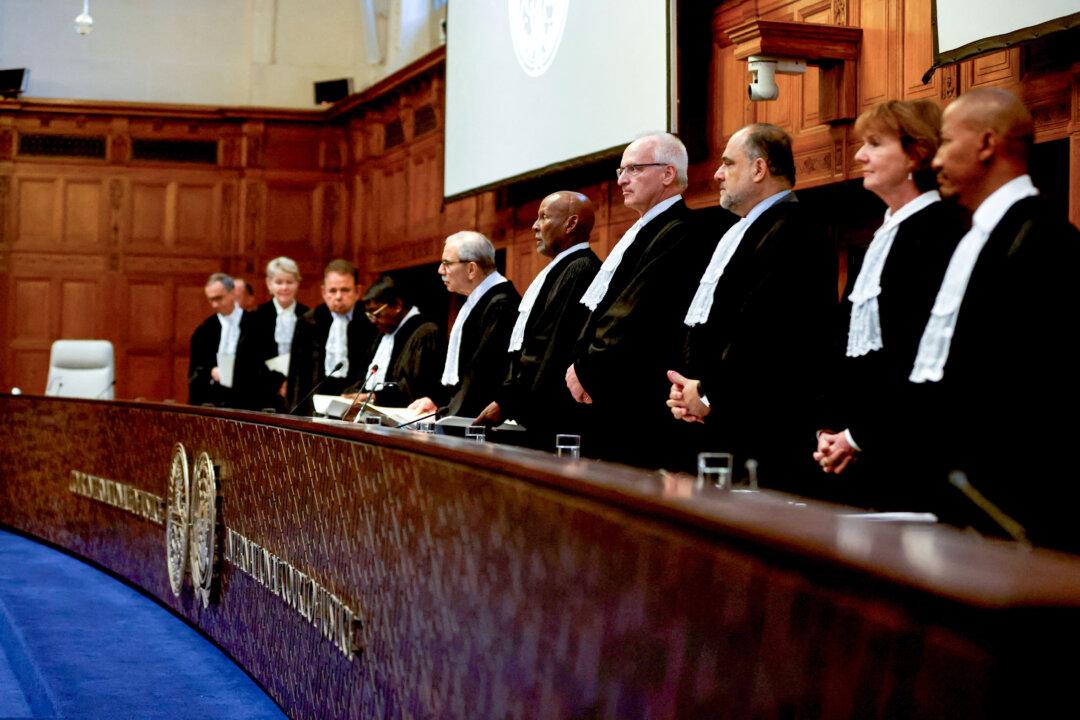Israel’s settlements in the West Bank and East Jerusalem are illegal and should be withdrawn immediately, the United Nations’ highest court said on July 19. Israeli Prime Minister Benjamin Netanyahu rejected the court’s opinion.
In a nonbinding, advisory opinion, the International Court of Justice (ICJ) found that Israel “is under an obligation to bring to an end its unlawful presence in the Occupied Palestinian Territory as rapidly as possible,” adding that Israeli settlements in East Jerusalem and the West Bank “have been established and are being maintained in violation of international law.”





